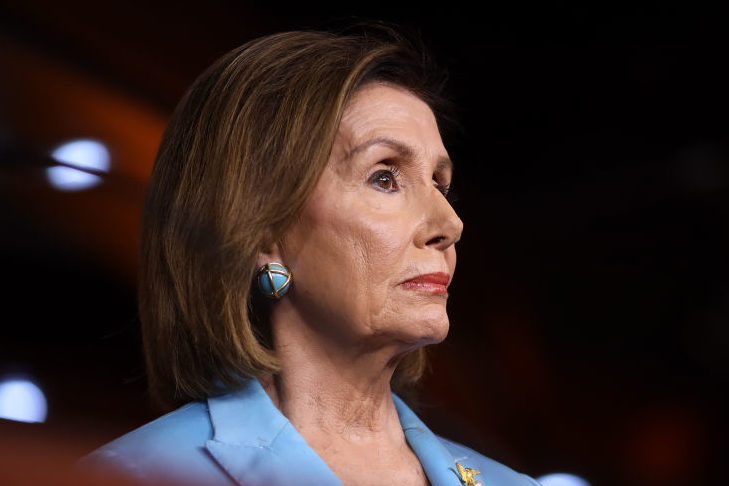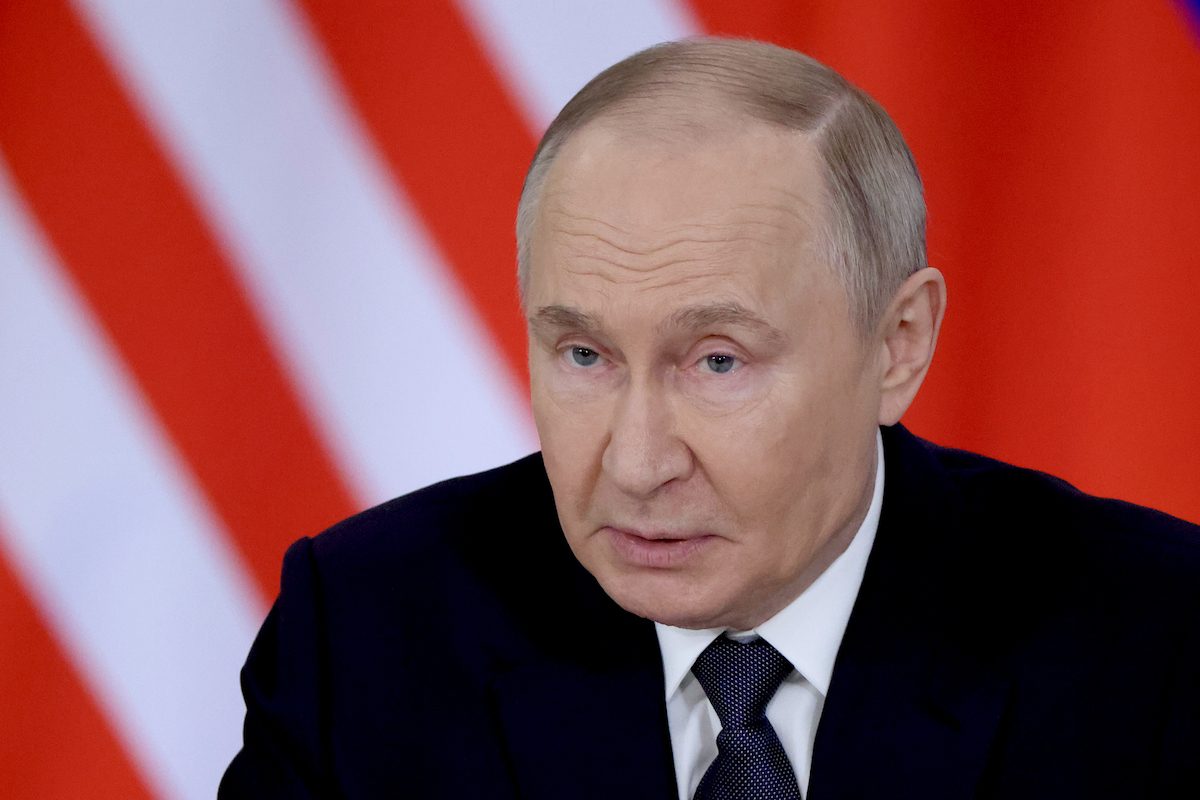The most important thing to know about Democrats’ impeachment inquiry is this: it is not about removing President Trump now; it is about damaging him now so he can be defeated next year.
Impeachment normally seeks to remove the president (or a federal judge) from office. A successful House vote is only the first step. The Senate needs strong evidence to convict, and House leaders try to provide it with their investigation and public hearings. That’s what we learned in seventh-grade civics.
But Nancy Pelosi is not in middle school. She is teaching postgraduate courses, and she knows a Republican Senate is very unlikely to convict Donald Trump without a lot more evidence than has been brought to light along with a groundswell of public support. So, the House speaker has a more realistic goal, and it’s a purely political one. Her aim is to prevent Trump’s reelection. To do it, she has exerted tight, unilateral control over the process and handed day-to-day investigation to her California protégé, Adam Schiff, who heads the committee on intelligence. His secret hearings are in sharp contrast to the open ones held for Richard Nixon and Bill Clinton by the House Judiciary Committee.
Schiff’s closed-door sessions, his refusal to allow Republicans to call witnesses, and his prohibition of White House participation are all clear indications of Pelosi’s strategy. She and Schiff are using the investigation as publicly funded opposition research, complete with subpoena power, much like the probe that resulted in the second volume of Robert Mueller’s report.
They don’t need to convince activist Democrats that Trump needs to go. The most vocal have demanded it since 2016, even before inauguration. Others have joined them more recently. Polls show some independent voters are moving in their direction, fueled by an intense media campaign. So far, however, the numbers are not nearly enough to isolate Trump (as Nixon was isolated) or to convince two-thirds of the Senate to convict him. The upper chamber needs a lot more incriminating evidence and so does the public.
The Democrats have promised that material before but failed to deliver. Last year, Schiff claimed he had proof of Trump’s malfeasance, but he couldn’t deliver. Jerry Nadler, chair of the Judiciary Committee, tried to find something — anything — but failed and turned his committee into a partisan food fight. The Democrats and their media allies had counted on Robert Mueller, but that didn’t work out, either. None of these failures means the Democrats, Washington Post, or New York Times won’t find more compelling evidence this time, but the track record is not encouraging.
So far, all they’ve got is a questionable phone call from the president to his Ukrainian counterpart, a pause in aid to Ukraine (which Kyiv didn’t know about and had no practical effect), and a hyperbolic, second-hand complaint from an anonymous CIA operative. The spy, who worked with then-Vice President Biden, claimed whistleblower protection under suspiciously new rules and worked with Schiff’s staff to report it. (Schiff lied about this contact.) We don’t know the name of the whistleblower or who else he may have spoken with, aside from his attorneys. We don’t know which CIA officers at the White House passed along the information or whether they will seek whistleblower protection to cover their unauthorized disclosures of classified information.
The whistleblower allegations and Rudy Giuliani’s ties to now-indicted Ukrainians raise serious questions about the president’s conduct. Polls show the public is concerned. But ‘concerned’ does not mean ‘convinced’. Voters want clear-cut evidence of high crimes before removing a duly-elected president from office, especially since they get to vote on him next year. They also want evidence that impeachment is bipartisan, that it seeks to protect our country and not just one party.
Pelosi knows she cannot provide it. She is not counting on an avalanche of damning new evidence or a collapse of Trump’s Republican support in the House or Senate. Instead, she’s counting on the damage she can do to Trump’s chances in 2020. It’s a risky strategy, one that could sink the president but could also endanger the Democrats’ House majority.
The best way to understand the speaker’s true aim is to ask ‘how would Pelosi, Schiff, and their allies act if their goal was really to remove Trump from office by impeachment?’
The short answer is that they would bend over backwards to show the whole process is fair, open, and deliberate. They would use that impartial process to forge a broad, bipartisan consensus that the president had committed ‘high crimes and misdemeanors’ and should be removed. That’s exactly what Democrats did during the Nixon impeachment. It’s not what they are doing now.
It’s not only that the current procedures are intensely partisan, that witnesses are interviewed in secret, that Pelosi has set ad hoc rules by fiat, or that Republicans have been entirely shut out of the process. Nor is it only that Pelosi and her allies are determined to rush a foregone conclusion through committee and avoid going to court if Trump refuses to provide documents or witnesses. (Normally, federal courts would settle such a standoff between the legislative and executive branches.) Schiff and Pelosi have announced that they won’t litigate these issues or give the White House due process. Instead, they will count any refusal as evidence of obstruction. Their reason is simple: speed is more important than judicial legitimacy.
All these are important points, but there is a bigger one. These streamlined, partisan procedures are proof that House Democrats are not trying to win bipartisan support for impeachment or set the stage for Senate conviction. They are building a case against Trump to defeat him at the ballot box.
Politically, that strategy makes sense. Republican officeholders won’t abandon Trump unless he is badly weakened. Until then, they fear his clout; he has proven he can defeat enemies in party primaries. Just ask the governors of Florida and Georgia.
Pelosi understands this terrain and the choice it poses. She can either drop the endless investigations and face the wrath of her party base, or she can plunge ahead, call it impeachment, and hope to defeat Trump next year. She has chosen the latter.
This impeach-and-be-damned strategy is risky. It is already hurting vulnerable, centrist Democrats, and the damage could mount. Ukraine is the only plausible issue for impeachment, but that focus has already knee-capped the leading Democratic candidate, Joe Biden. His son, Hunter, earned big money from a Ukrainian energy company without any qualifications beyond his DNA. The more Democrats focus on Ukraine, the worse for Biden.
More damage is coming if impeachment reaches a House vote. Pelosi holds the speaker’s gavel because centrists Democrats won in districts Trump carried three years ago. Their voters’ central message was to work with Republicans and get things done. These newly elected officials couldn’t accomplish that. The fault may not be theirs, but they still have nothing to show voters back home. If they lose next year, Pelosi could lose her gavel. That’s one reason she has postponed a floor vote to authorize the inquiry. But she can’t delay forever or deliver on the centrists’ promise to pass significant, bipartisan legislation.
This drama is building to a nasty climax: a dirty campaign from now until November 2020. Trump and his allies will run on a strong economy and against a ‘do nothing’ Congress controlled by ‘radical socialists’. Democrats will run against a ‘corrupt, erratic, self-dealing Trump and his spineless supporters.’
Unless the Democrats can find a clean, competent, center-left candidate to lead them, they face a difficult task. They will need to sell the public on unpopular, brutally expensive new Washington programs. That agenda doesn’t just split the country, it splits the Democrats. What unifies them is hating Trump and everything he stands for.
Pelosi’s impeachment strategy is not separate from this electoral calculation. It’s central to it.
Charles Lipson is the Peter B. Ritzma Professor of Political Science Emeritus at the University of Chicago, where he founded the Program on International Politics, Economics, and Security. This article was originally published on RealClearPolitics.


























